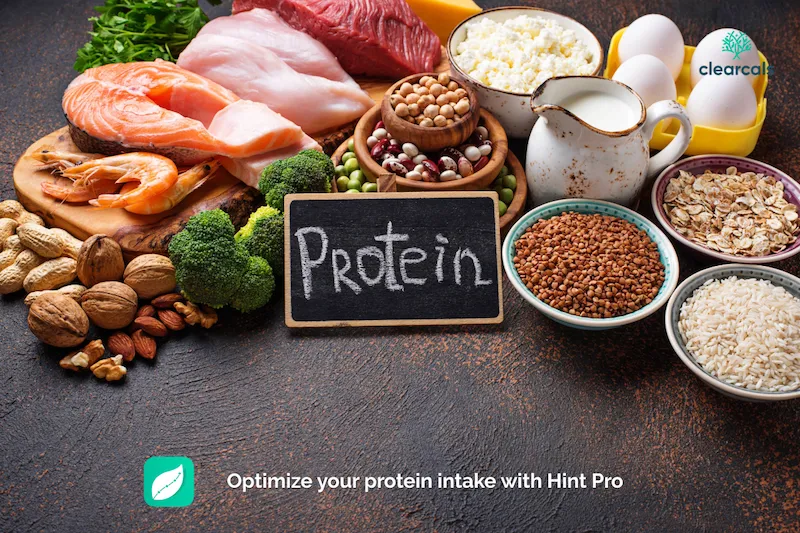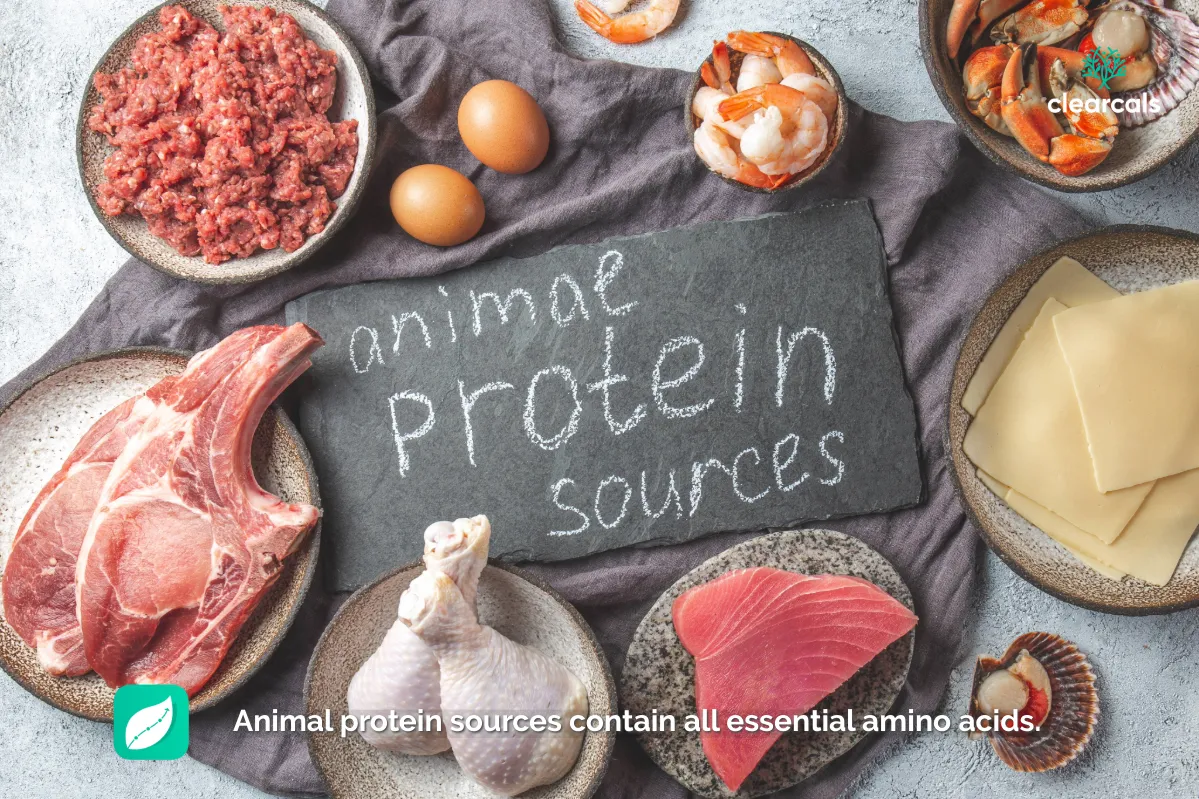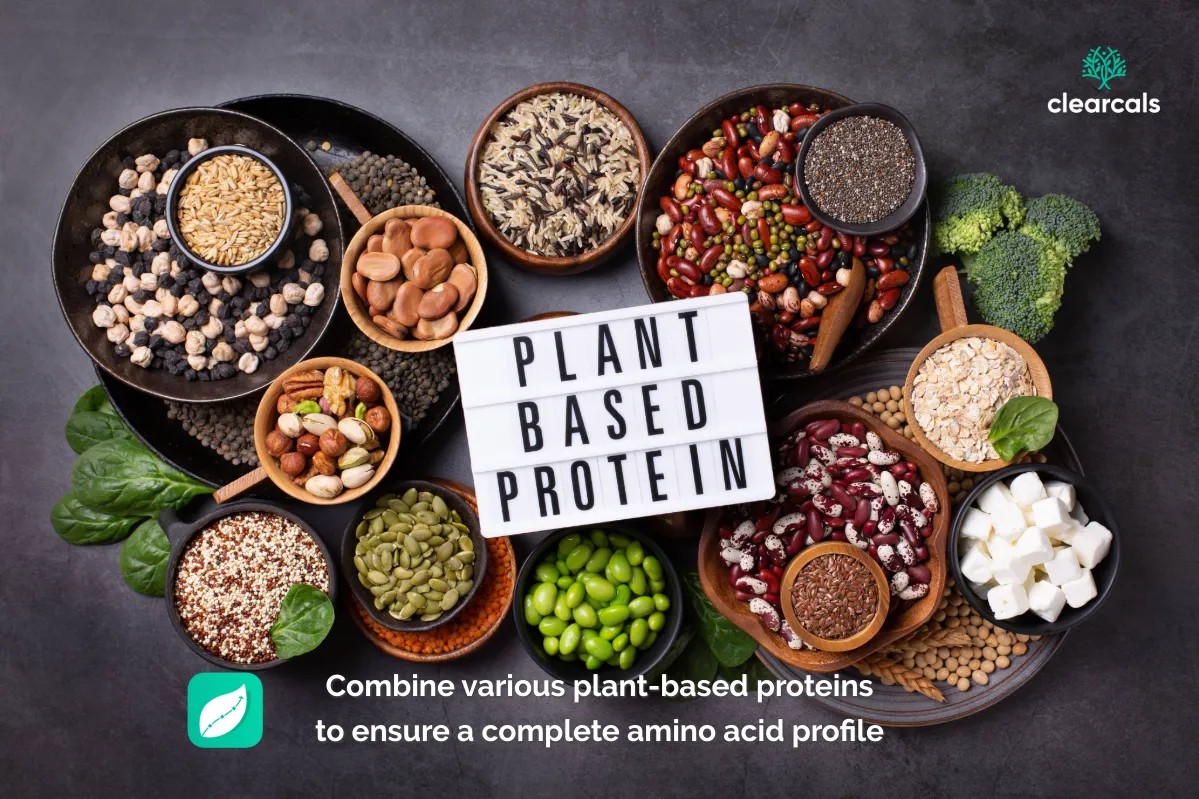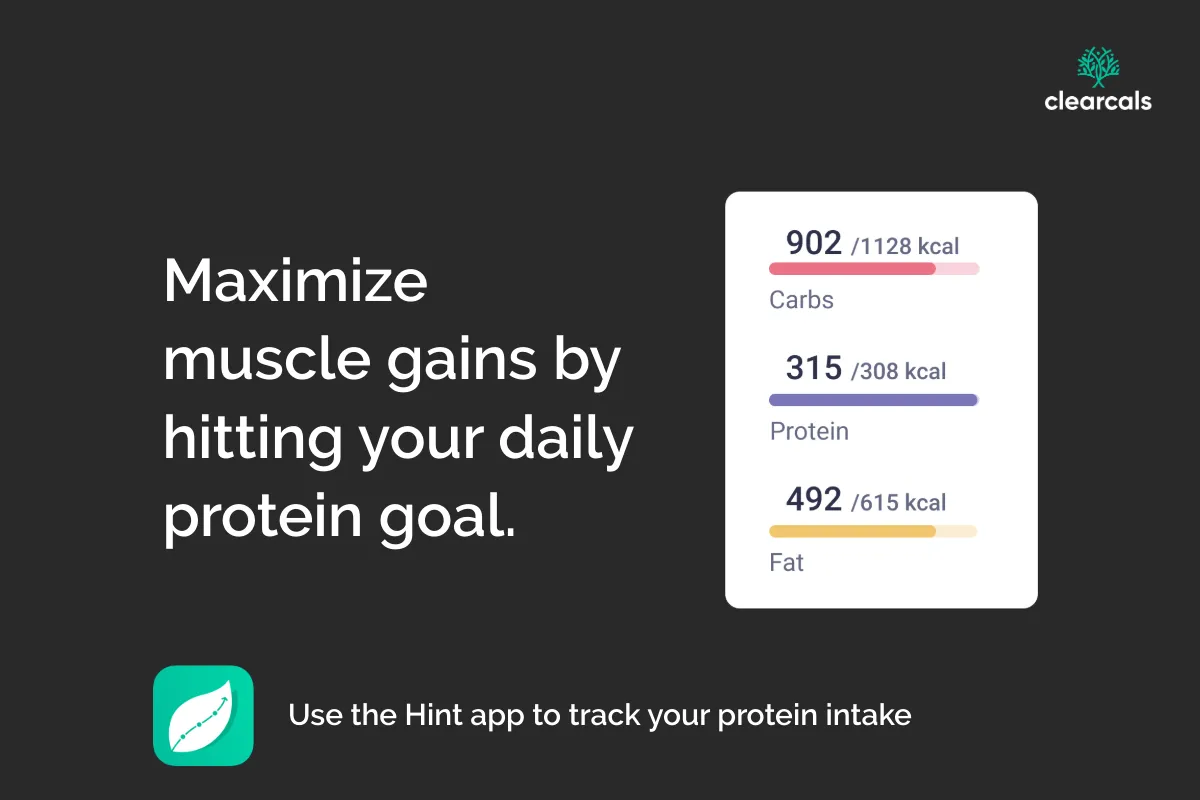Looking for a Personalized Diet Plan?
The Role of Protein in Muscle Building

Protein is often hailed as the cornerstone of muscle building, and for good reason.
It plays a vital role in repairing and building muscle tissues, making it an essential nutrient for anyone looking to enhance their physique.
In this blog, we'll delve into the importance of protein for muscle building and how you can optimize your protein intake with the help of the Hint app.
Why Protein Matters for Muscle Building
Muscle Repair and Growth: When you engage in resistance training, such as weightlifting, you create tiny tears in your muscle fibers.
Protein provides the amino acids necessary for repairing these tears, leading to muscle growth and increased strength.
Protein Synthesis: This is the process where the body uses dietary protein to produce new muscle proteins.
For muscle growth to occur, protein synthesis must exceed muscle protein breakdown, which typically happens during and after exercise.
Hormonal Support: Protein intake influences the production of anabolic hormones like insulin and growth hormone, which play critical roles in muscle growth and recovery.
How Much Protein Do You Need?
General Guidelines: The recommended daily allowance (RDA) for protein is 0.8 grams per kilogram of body weight.
However, for those looking to build muscle, higher intake is often necessary. Aim for 1.2 to 2.2 grams of protein per kilogram of body weight.
Tailoring to Your Needs: Factors such as age, gender, workout intensity, and overall goals can affect your protein requirements.
The Hint app can help you calculate your ideal protein intake based on your unique profile and fitness objectives.
Best Sources of Protein
Animal-Based Proteins: These are considered complete proteins as they contain all essential amino acids.

Examples include:
- Chicken, turkey, and lean beef
- Fish and seafood
- Eggs and dairy products like milk, cheese, and yogurt
Plant-Based Proteins: These can also support muscle building, especially when combined to ensure a complete amino acid profile.

Examples include:
- Beans, lentils, and chickpeas
- Tofu, tempeh, and edamame
- Nuts, seeds, and quinoa
The Hint app offers meal planning features that can help you incorporate a variety of protein sources into your diet, whether you're an ovo vegetarian, nonvegetarian, or vegetarian.
Timing and Distribution of Protein Intake
Post-Workout Nutrition: Consuming protein after your workout can enhance muscle repair and growth. Aim to have a protein-rich meal or shake within 30 minutes to 2 hours post-exercise.
Regular Protein Intake: Distributing your protein intake evenly across meals helps maintain a positive protein balance throughout the day.
For example, rather than consuming a large amount of protein in one meal, spread it out over 3-4 meals and snacks.
The Hint app can remind you to consume protein at optimal times, helping you maintain consistent intake and support muscle growth effectively.
Protein Supplements
Whey Protein: This fast-digesting protein is popular for post-workout recovery. It contains all essential amino acids and is quickly absorbed by the body.
Casein Protein: Slower digesting than whey, casein is ideal for providing a steady supply of amino acids over several hours, such as before bed.
Plant-Based Protein Powders: Options like pea, hemp, and rice protein are excellent for those who prefer or need to avoid dairy.
Monitoring Your Protein Intake
Track Your Nutrition: Keeping track of your daily protein intake ensures you're meeting your goals and making adjustments as needed.
The Hint app's nutrition tracker makes it easy to log your meals and monitor your protein consumption.

Adjust as Needed: Your protein needs may change as you progress in your fitness journey. Regularly review and adjust your intake based on changes in your weight, muscle mass, and workout intensity.
The Hint app can provide personalized recommendations to keep you on track.
Conclusion
Protein is a crucial nutrient for muscle building, playing a key role in muscle repair, growth, and overall recovery.
By understanding your protein needs, choosing the right sources, timing your intake, and utilizing supplements wisely, you can optimize your muscle-building efforts.
The Hint app is an invaluable tool to help you manage and monitor your protein intake, offering personalized advice, meal planning, and tracking features to support your fitness journey.
Download the Hint app today and take a proactive step towards achieving your muscle-building goals.





